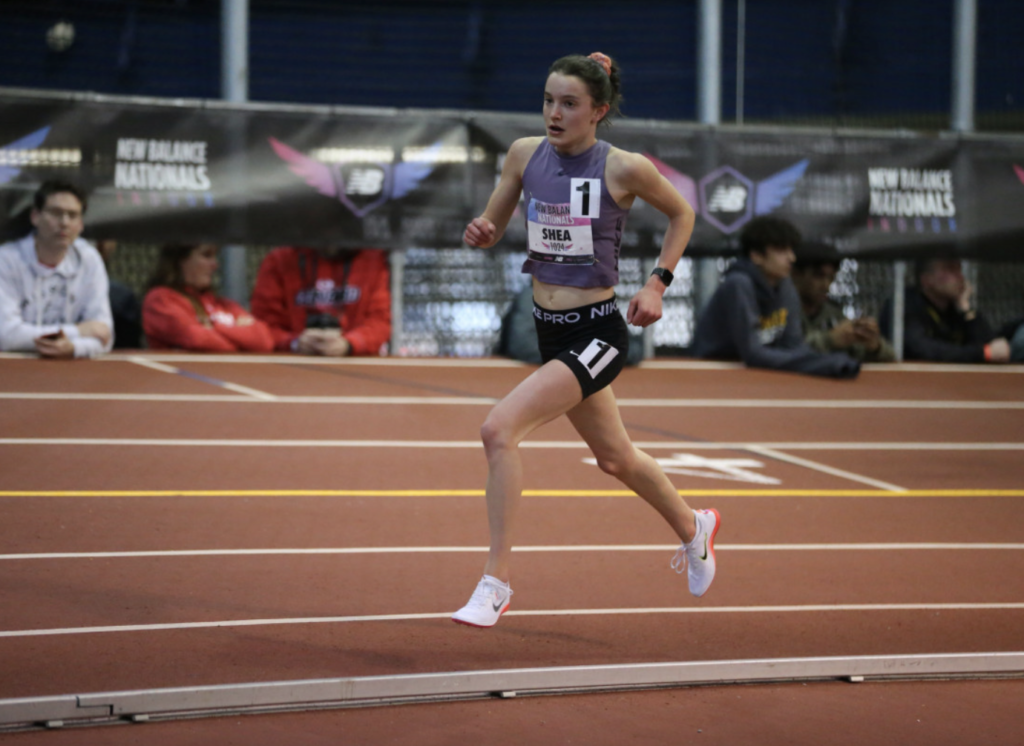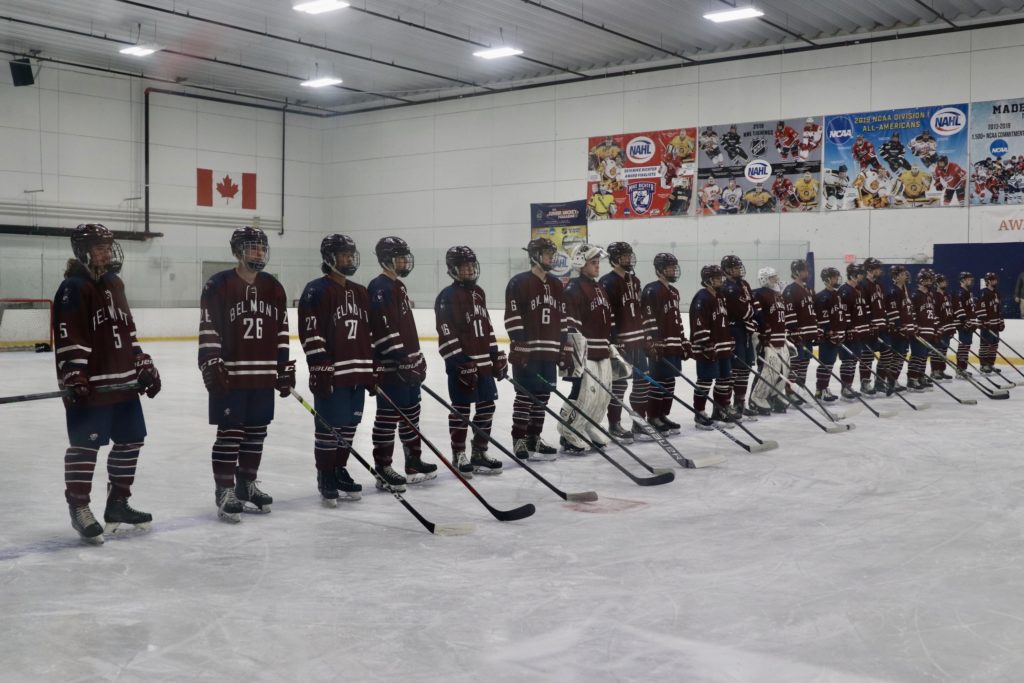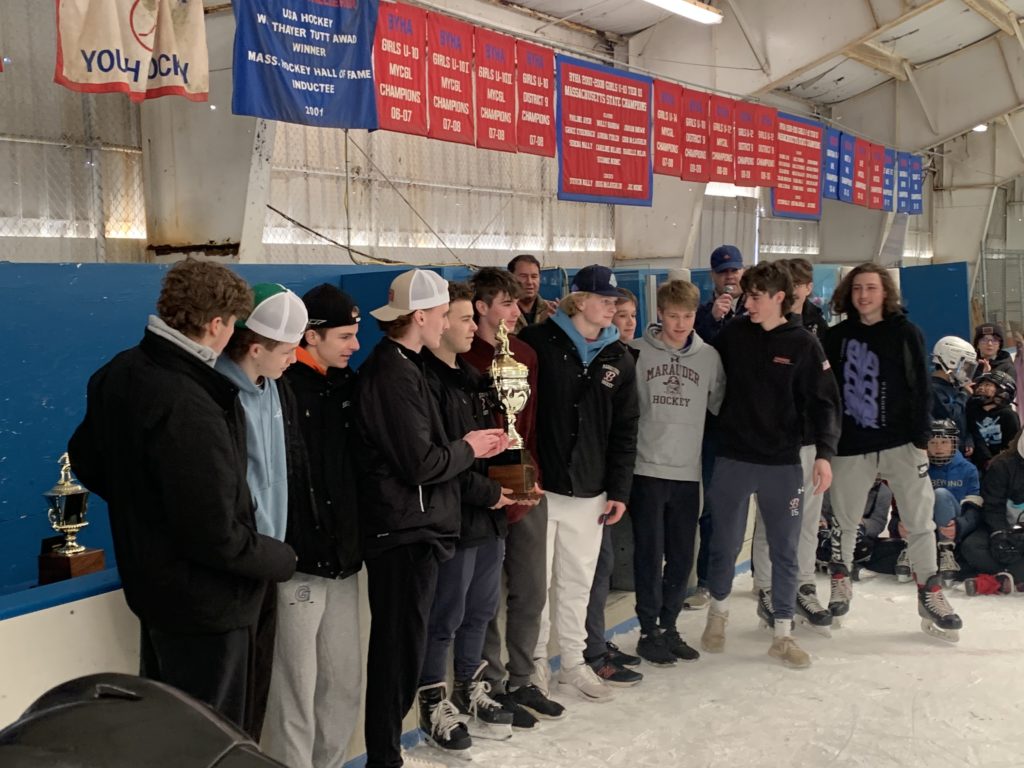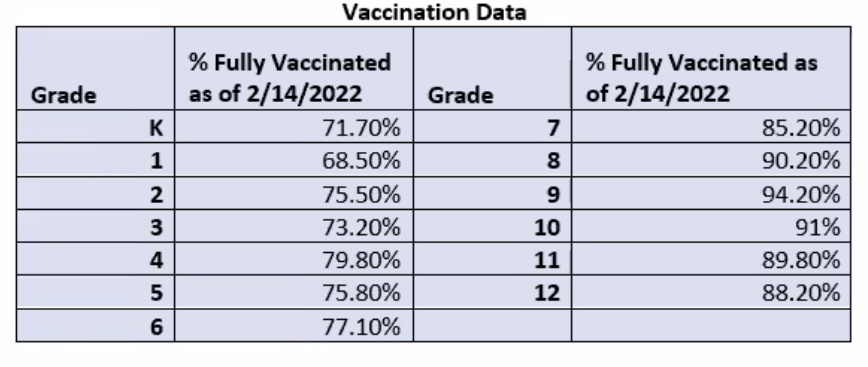Photo: Belmont’s Ellie Shea set the second fastest indoor 5,000 meters by a high school student in history at the New Balance National Indoor Championships on Saturday, March 12.(Credit: John Nepolian, New Balance National Indoor)
One of the popular activities out-of-towners do in New York City is to head down to Broadway to take in a show.
This past weekend in NYC, Belmont’s Ellie Shea WAS the show. And the stage she starred on was The Armory’s New Balance Track & Field Center in upper Manhattan.
“Recognize this face?,” shouted the overexcited announcer introducing the Belmont High School sophomore before her third race in as many days at the New Balance National Indoor High School Championships held from March 11 to 13. “She’s back!”

The Sunday afternoon race was the third time Ellie was racing at the premier high school competition, the only one of the top five runners in the race who ran more than just the mile. And despite running five miles on the boards over the first two days, all in world-class times for a 16-year-old, Shea did not disappoint when the gun went off.
In a dominating series of performances, Shea put her stamp on the national showcase indoor track meet:
- On Saturday, Ellie destroyed a top-ranked field to win the 5,000 meters indoor title in 15 minutes, 49.47 seconds, a personal best by 20 seconds. She didn’t just break the previous 5K record ever run by a high schooler in the Amory, she took an baseball bat to it, lowering the existing mark by six seconds. She now holds the second best time by a high schooler in history. Shea is the current national 5,000 meter high school title-holder both indoors and outdoors. The race can be seen here: https://www.nbnationalsin.com/eprofile.php?event_id=1164&do=videos&video_id=323920
- Friday, Shea finished second to Texas senior Natalie Cook – who won the Eastbay National Cross Country Championship in December – in the two mile. Her time of 9:49.2 broke Olympic bronze medalist Lynn Jennings’ Massachusetts record from 1978 by 18 seconds and Katelyn Touhy’s sophomore national record by 6 seconds. Her “enroute” 3,000 meter time – runners are clocked passing that distance during the two mile – of 9:13.4 was just above her PR of 9:08.54 set at Boston University in February. Shea is currently the world’s second fastest female under 18 years old in the indoors 3,000 and fourth in the 1,500, according to the iaaf.
- In her final race, Shea finished fourth in the mile in 4:41 flat nearly catching senior Riley Steward of Colorado who out leaned the on rushing 16 year old. Her enroute mark for the classic 1,500 meter distance was 4:22.9. She ran her PR of 4:21.42 in the Boston University race where she set her mile best of 4:40.01.
In an interview after her record-breaking 5,000, Shea said her personal goal coming to the meet was “to get as many learning experiences as possible, to race a bunch of different events from 800 [meters] all the way to 5K. And I’m happy that I’ve now pretty much done all the events.”



